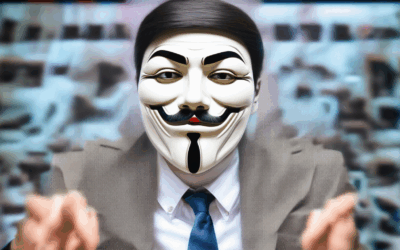Have you ever wondered how you can share your thoughts without revealing your identity? In today’s digital age, the ability to express oneself anonymously has become a hot topic. While many see it as a cornerstone of free speech, others worry about its impact on accountability and trust. Understanding the rights and limitations surrounding this practice is crucial for anyone who values free expression. From protecting whistleblowers to fostering open discussions, the concept of anonymity plays a pivotal role in shaping our online interactions. But is it truly a right, or simply a privilege with strings attached? This article delves into the complexities of anonymous communication, exploring its benefits, challenges, and the broader societal implications.

Is There a Right to Speak Anonymously?
The right to speak anonymously is a fundamental aspect of free expression, protected under various legal frameworks and ethical principles. In many jurisdictions, including the United States, the First Amendment ensures that individuals can express themselves without fear of retribution or identification, provided the speech is lawful.
Right Under the First Amendment
In the United States, the Supreme Court has consistently held that anonymous speech is protected under the First Amendment. For example, in *Cohen v. California* (1971), the Court affirmed that wearing a jacket bearing offensive language in public was constitutionally protected, emphasizing the importance of anonymous expression.
State Laws Protecting Anonymous Speech
Some states have enacted laws to further safeguard anonymous speech. For instance, California Senate Bill 1424 (2011) prohibits the disclosure of personal information about individuals who make anonymous online communications, except in limited circumstances. Similar protections exist in other states to prevent retaliation against anonymous speakers.
Platform Policies and Anonymity
While governments may regulate speech in certain contexts, private platforms often impose their own rules regarding anonymity. For example, websites may require users to use real names for purchasing goods or services, though this practice has faced legal challenges for infringing on privacy rights.
International Perspectives on Anonymity
Internationally, the issue of anonymous speech varies by jurisdiction. The European Union’s Data Protection Directive (GDPR) requires platforms to protect users’ identities when sharing personal data, though exceptions apply in specific cases. In contrast, countries like South Korea have implemented stricter measures to combat cyberbullying and hate speech, sometimes requiring real-name identification online.
Ultimately, the right to speak anonymously is a balancing act between individual privacy and the public’s interest in transparency. While governments and platforms work to establish boundaries, the principle of anonymous speech remains a cornerstone of democratic discourse.
What Does It Mean To Be Anonymous?
Anonymously refers to acting or functioning without identification of the source or participant. In online contexts, it typically means not revealing one’s personal details or identity.
Definition:
Anonymous behavior involves conducting activities without disclosing personal information, such as a name, location, or other identifiable details.
Examples:
- Posting comments on forums or social media without using a real name.
- Participating in surveys or polls where identities are not shared.
- Using pseudonyms or nicknames in online discussions.
Why People Choose Anonymity:
- Privacy concerns: Users may wish to protect their personal information from public view.
- Fear of judgment or reprisal: Individuals may not want others to know their opinions or actions.
- Protection from professional consequences: Anonymity can shield job-related or personal decisions from scrutiny.
Benefits of Anonymity:
- Freedom of expression: People can share thoughts and opinions without fear of negative consequences.
- Encouragement of participation: Anonymity can increase engagement in discussions and activities.
- Reduced social pressure: Users may feel more comfortable expressing themselves in certain settings.
Challenges of Anonymity:
- Potential for misuse: Anonymity can enable trolling, spamming, or spreading misinformation.
- Loss of accountability: It becomes difficult to identify responsible parties for harmful actions.
- Verification issues: Anonymity can complicate authenticating user identities or intentions.
In summary, being anonymous allows individuals to engage in various activities without disclosure of personal details, offering privacy and freedom while posing challenges related to accountability and misuse.

Can Something Be Both Anonymous and Confidential?
Yes, something can be both anonymous and confidential depending on the context and the measures taken to protect the information. Here’s how:
- Anonymous : This typically refers to the absence of any personally identifiable information (PII), such as names, addresses, or phone numbers. In this state, the individual’s identity is hidden, but their actions or contributions may be tracked or recorded.
- Confidential : This pertains to information that is intended to be private and should not be disclosed to unauthorized parties. Confidentiality ensures that sensitive data remains protected, often through encryption, access controls, or contractual obligations.
When combined, these concepts allow for a dual-layered approach to data handling. For example, in a study, participants might have the option to contribute to an anonymous survey while also having the confidentiality of their responses protected under strict agreements. This combination ensures that participants feel secure while still allowing their inputs to be tracked without exposing their identities.
By implementing both anonymity and confidentiality, organizations can balance the need for data collection with the protection of individual privacy, fostering trust and encouraging greater participation in sensitive activities.

Does Freedom of Speech Include Anonymity?
The right to freedom of speech includes the right to speak anonymously, as recognized by the U.S. Supreme Court. Anonymous communication is protected under the First Amendment, allowing individuals to express themselves without fear of retribution or identification.
- Legal Protection: The Supreme Court has consistently ruled that anonymous speech is a protected form of free expression. This ensures that individuals can engage in political and social discourse without risking harm to their personal safety or career prospects.
- Preventing Retaliation: Anonymity serves as a shield against potential backlash, enabling people to discuss sensitive topics or criticize institutions without fear of negative consequences.
- Protecting Vulnerable Groups: Anonymous speech is particularly valuable for marginalized communities, allowing them to share their experiences and perspectives without facing discrimination or harassment.
- Legal Requirements: In certain cases, such as whistle-blowing or reporting illegal activities, anonymity may be legally mandated to protect the individual’s rights and safety.
- Balancing Privacy and Public Interest: While anonymity protects individual rights, it must sometimes yield to legitimate public interests, such as in cases of public concern or when there is a clear public benefit to knowing the speaker’s identity.
Anonymity platforms like AnonyPost provide spaces for individuals to express their thoughts and opinions safely, fostering open dialogue and encouraging participation in discussions on important issues. These platforms align with the principles of free speech while respecting users’ privacy and security.
For further reading on the intersection of anonymity and free speech, visit the Electronic Frontier Foundation ‘s resource on anonymous communications.
Is Being Anonymous Illegal?
Anonymity refers to the condition of being unknown or unidentifiable. Whether being anonymous is illegal depends on the context and jurisdiction. Below are key points to understand:
- Legal Requirements for Identification :
In many jurisdictions, including the United States, there are laws that mandate individuals to identify themselves under certain circumstances. For instance, in states with “stop and identify” statutes, law enforcement may require individuals suspected of crimes to provide identification. Failure to do so can result in penalties. - Online Anonymity :
Using pseudonyms or anonymous accounts online is generally permissible unless it involves illegal activities such as fraud, impersonation, or harassment. Many platforms allow users to maintain anonymity to protect privacy. - Privacy Laws :
In countries like those in the European Union, privacy rights are strongly protected. Anonymity is often safeguarded, especially in relation to personal data and digital communications. - Ethical Considerations :
While not inherently illegal, using anonymity to evade legal obligations or harm others is unethical and can lead to criminal charges.
To summarize, being anonymous is not inherently illegal, but its legality varies depending on the context and jurisdiction. Understanding local laws and ethical considerations is crucial when choosing to remain anonymous.

Words Not Protected by Freedom of Speech
The First Amendment to the United States Constitution guarantees the freedom of speech, but there are certain exceptions and limitations. Here are some categories of speech that are not protected:
- Hate Speech: Speech that incites or advocates for violence or hatred against a particular group of people based on race, religion, gender, disability, sexual orientation, or other protected characteristics is not protected.
- Defamation: False statements that harm someone’s reputation can be legally actionable. The distinction between protected opinion and defamatory speech can be blurry, particularly when dealing with public figures versus private individuals.
- Obscenity: Certain types of explicit or vulgar speech may be restricted under laws governing obscenity, especially when it involves children or promotes illegal activities.
- Threats and Harassment: Threatening someone with violence or engaging in harassing behavior, whether through words or actions, is not protected under freedom of speech.
- Incitement to Violence: Speech that directly advocates for the commission of violent acts may be restricted or prohibited depending on the circumstances and the potential harm caused.
- Child Pornography and Other Illegal Content: Speech that involves the creation, distribution, or possession of child pornography or other illegal materials is not protected and is subject to criminal prosecution.
It’s important to note that these exceptions are interpreted and applied by courts based on specific legal standards. The protection of free speech is balanced with the need to protect public safety and national security.




0 Comments